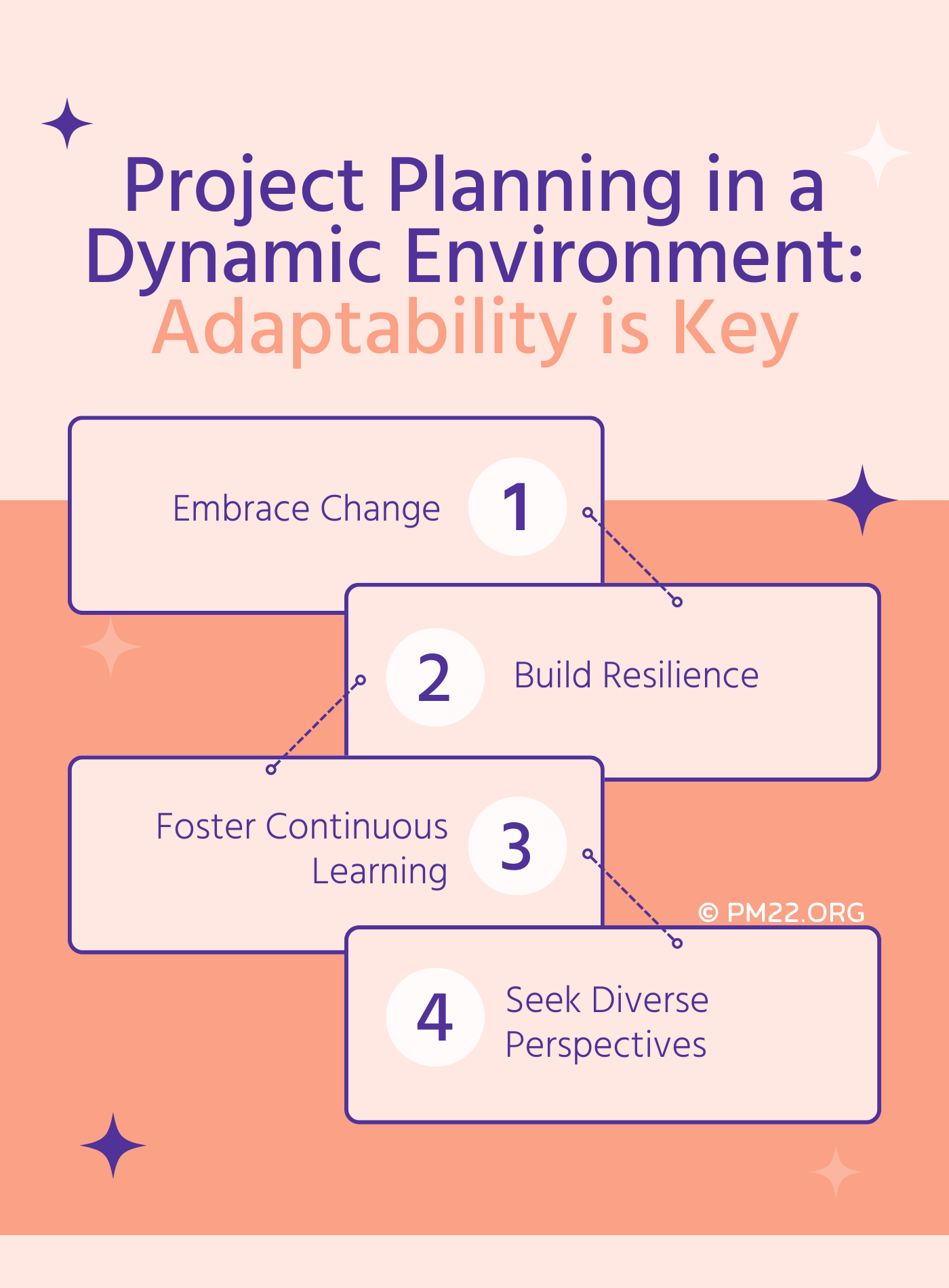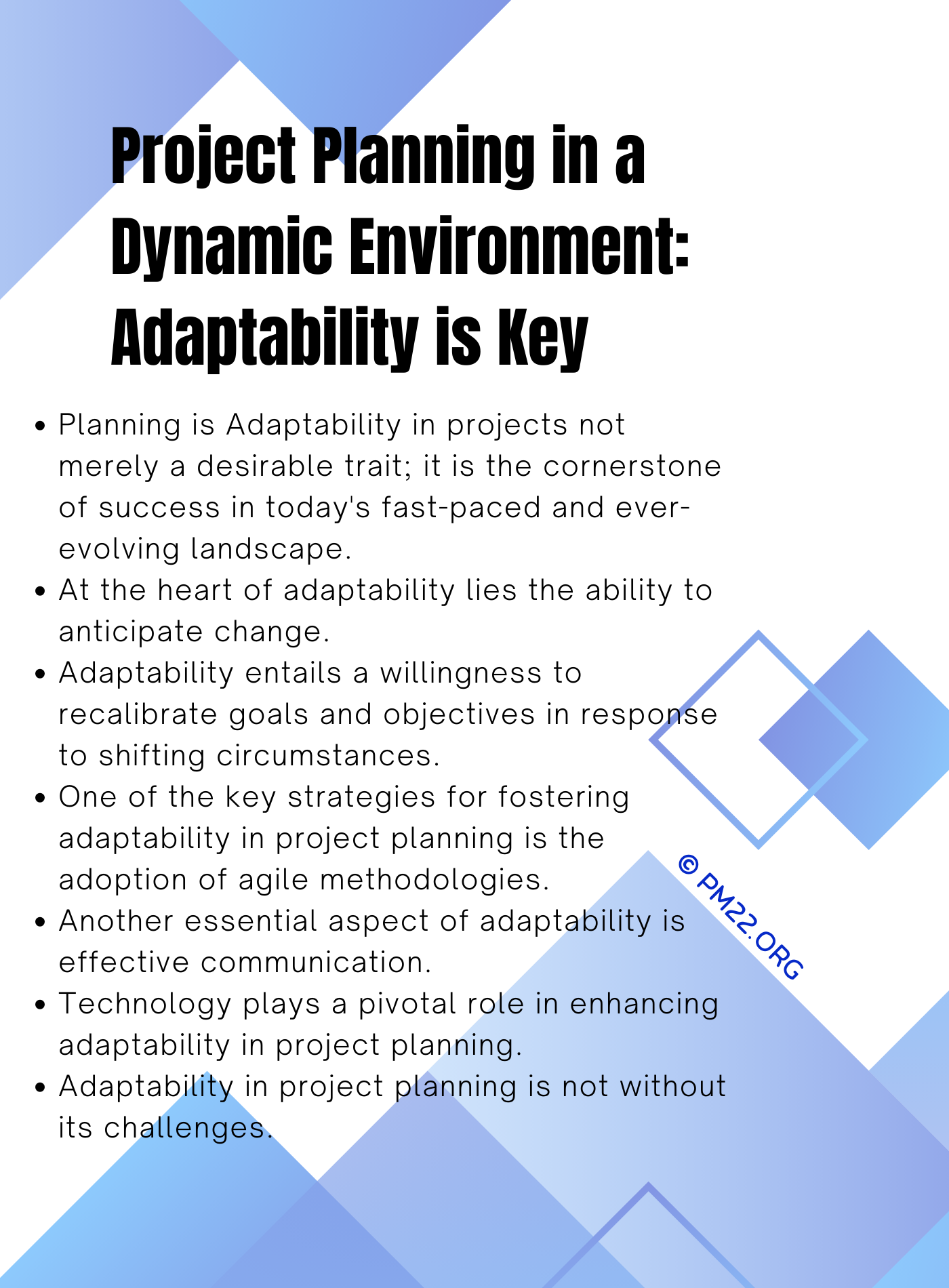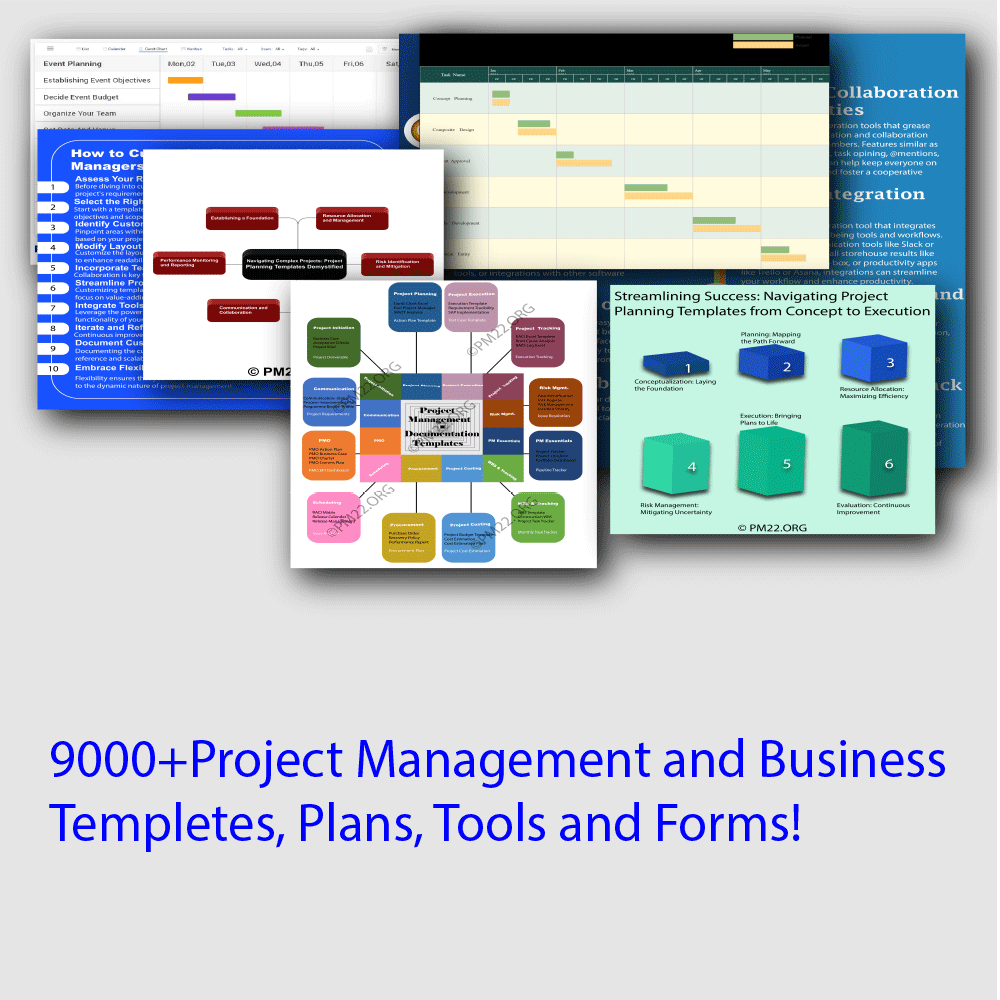 In the realm of project management, the one constant is change. Projects often unfold in dynamic environments, where unforeseen challenges and opportunities can emerge unexpectedly. In such scenarios, rigid adherence to initial plans can prove detrimental, highlighting the indispensable need for adaptability in project planning.
In the realm of project management, the one constant is change. Projects often unfold in dynamic environments, where unforeseen challenges and opportunities can emerge unexpectedly. In such scenarios, rigid adherence to initial plans can prove detrimental, highlighting the indispensable need for adaptability in project planning.
Planning is Adaptability in projects not merely a desirable trait; it is the cornerstone of success in today’s fast-paced and ever-evolving landscape. Gone are the days when projects could be meticulously mapped out from start to finish without room for deviation. Instead, modern project managers must embrace flexibility as a core principle and integrate it into every phase of the planning process.
At the heart of adaptability lies the ability to anticipate change. Effective project planning involves conducting thorough risk assessments and scenario analyses to identify potential disruptions before they occur. By acknowledging the inherent uncertainties of the environment in which a project operates, managers can develop contingency plans and allocate resources strategically to mitigate risks.
CLICK HERE TO DOWNLOAD 300+ PROJECT MANAGEMENT TEMPLATES & DOCUMENTS IN EXCEL
Moreover, adaptability entails a willingness to recalibrate goals and objectives in response to shifting circumstances. This requires a departure from the traditional linear approach to project planning towards a more iterative and adaptive methodology. Rather than viewing deviations from the original plan as failures, project managers should embrace them as opportunities for growth and innovation.
One of the key strategies for fostering adaptability in project planning is the adoption of agile methodologies. Agile frameworks, such as Scrum and Kanban, prioritize collaboration, flexibility, and incremental progress over rigid planning and documentation. By breaking down projects into smaller, more manageable iterations, teams can quickly respond to changes and deliver value to stakeholders promptly.
Another essential aspect of adaptability is effective communication. Open and transparent communication channels facilitate the exchange of ideas, feedback, and information among team members, enabling swift decision-making and course corrections when necessary. Regular meetings, status updates, and stakeholder consultations ensure that everyone remains aligned and informed throughout the project lifecycle.
CLICK HERE TO DOWNLOAD 300+ PROJECT MANAGEMENT TEMPLATES & DOCUMENTS IN EXCEL
Furthermore, technology plays a pivotal role in enhancing adaptability in project planning. Project management tools and software provide real-time insights into project performance, allowing managers to identify bottlenecks, allocate resources efficiently, and make data-driven decisions. Cloud-based platforms enable remote collaboration and accessibility, empowering teams to adapt to changing circumstances regardless of their location.
However, adaptability in project planning is not without its challenges. Resistance to change, lack of stakeholder buy-in, and organizational inertia can impede efforts to embrace flexibility and innovation. Overcoming these obstacles requires strong leadership, effective change management strategies, and a culture that values experimentation and continuous improvement.
In conclusion, project planning in a dynamic environment demands adaptability above all else. By embracing flexibility, anticipating change, and fostering a culture of innovation, organizations can navigate uncertainty with confidence and achieve success even in the face of adversity. In today’s volatile and unpredictable world, adaptability is not just a desirable trait—it is the key to unlocking resilience, agility, and sustainable growth.
